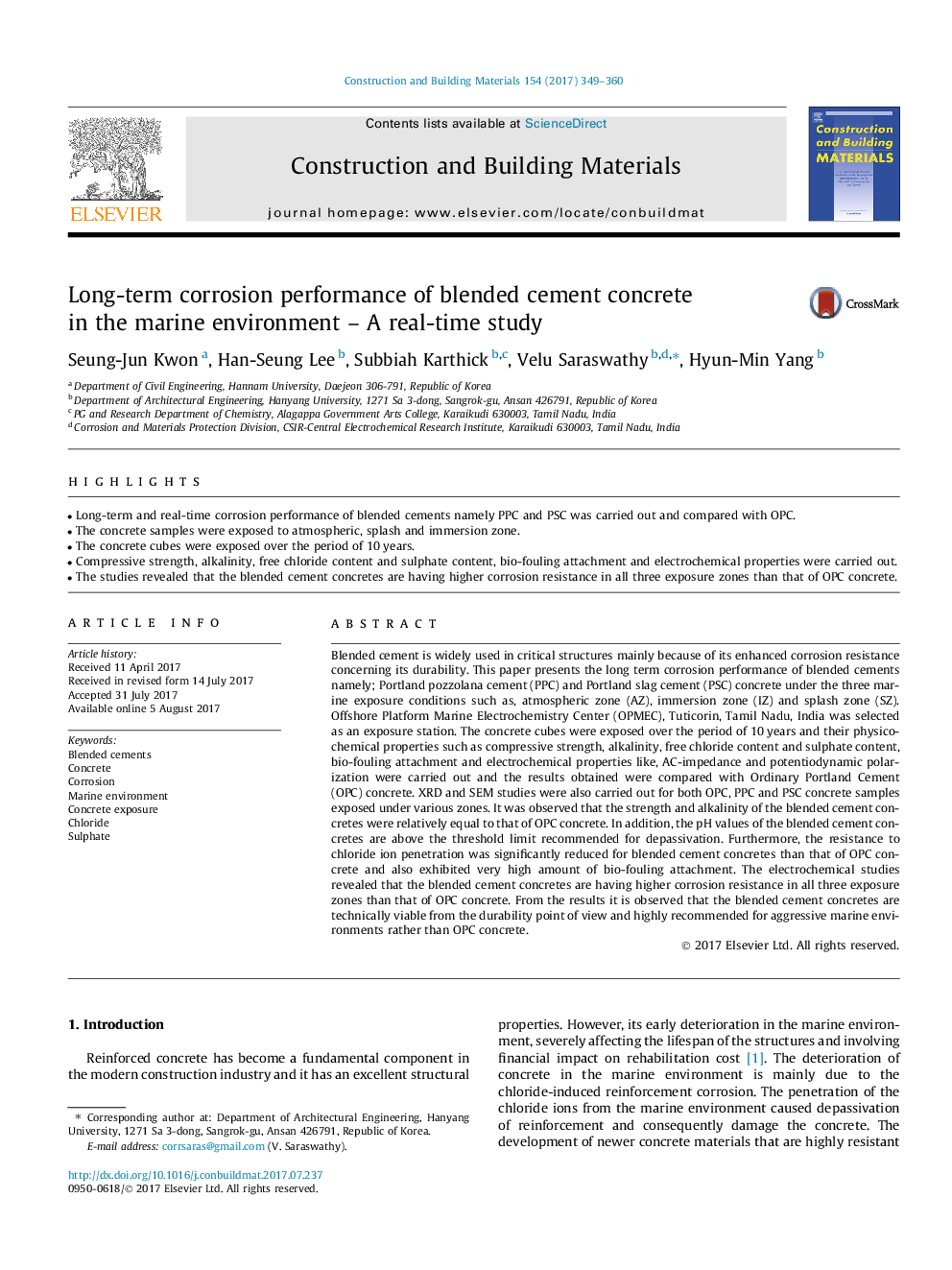| Article ID | Journal | Published Year | Pages | File Type |
|---|---|---|---|---|
| 6480120 | Construction and Building Materials | 2017 | 12 Pages |
â¢Long-term and real-time corrosion performance of blended cements namely PPC and PSC was carried out and compared with OPC.â¢The concrete samples were exposed to atmospheric, splash and immersion zone.â¢The concrete cubes were exposed over the period of 10 years.â¢Compressive strength, alkalinity, free chloride content and sulphate content, bio-fouling attachment and electrochemical properties were carried out.â¢The studies revealed that the blended cement concretes are having higher corrosion resistance in all three exposure zones than that of OPC concrete.
Blended cement is widely used in critical structures mainly because of its enhanced corrosion resistance concerning its durability. This paper presents the long term corrosion performance of blended cements namely; Portland pozzolana cement (PPC) and Portland slag cement (PSC) concrete under the three marine exposure conditions such as, atmospheric zone (AZ), immersion zone (IZ) and splash zone (SZ). Offshore Platform Marine Electrochemistry Center (OPMEC), Tuticorin, Tamil Nadu, India was selected as an exposure station. The concrete cubes were exposed over the period of 10Â years and their physicochemical properties such as compressive strength, alkalinity, free chloride content and sulphate content, bio-fouling attachment and electrochemical properties like, AC-impedance and potentiodynamic polarization were carried out and the results obtained were compared with Ordinary Portland Cement (OPC) concrete. XRD and SEM studies were also carried out for both OPC, PPC and PSC concrete samples exposed under various zones. It was observed that the strength and alkalinity of the blended cement concretes were relatively equal to that of OPC concrete. In addition, the pH values of the blended cement concretes are above the threshold limit recommended for depassivation. Furthermore, the resistance to chloride ion penetration was significantly reduced for blended cement concretes than that of OPC concrete and also exhibited very high amount of bio-fouling attachment. The electrochemical studies revealed that the blended cement concretes are having higher corrosion resistance in all three exposure zones than that of OPC concrete. From the results it is observed that the blended cement concretes are technically viable from the durability point of view and highly recommended for aggressive marine environments rather than OPC concrete.
